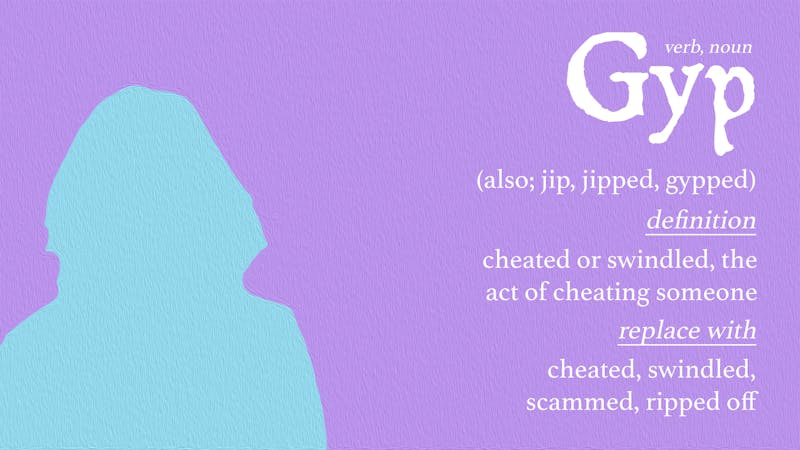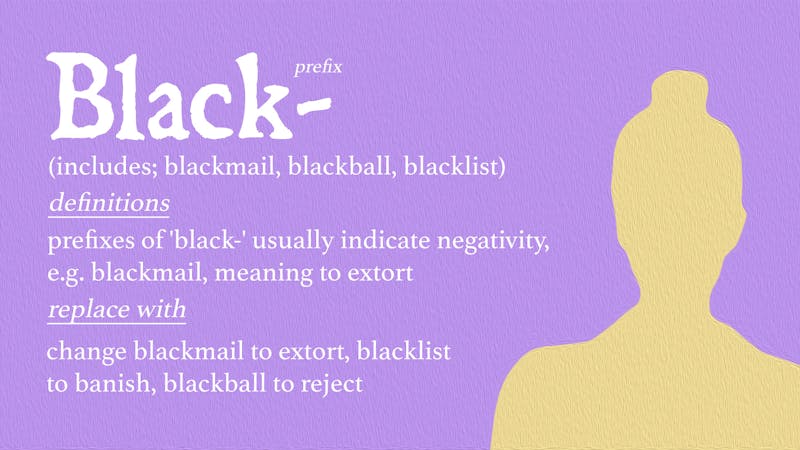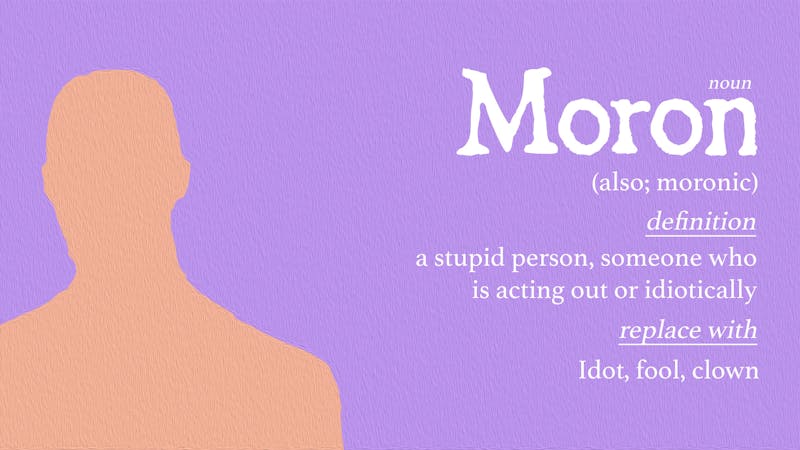10 Words and Terms You Never Knew Had Racist Origins

Racist language is usually very easy to spot. Most of us are familiar with the degrading and offensive language used to discriminate against groups of people, and we know what not to say. However, language is not always straightforward, and words and phrases we use every day can sometimes have darker origins. As the times change, so do the meaning of words, and whether we know it or not, the language we choose can sometimes be offensive and even racist. In this article, we are going to take a look at ten words and terms you never knew had racist origins. Some may surprise you, and it's quite likely that you have used a few of these words in the past. Let's find out and dive deep into the etymology of these particular words!
Gyp / Jip
'Gyp' (also used; jip, jipped, gypped) is a word most people associate with being ripped off, cheated, or scammed. However, the term 'gyp' comes from the word 'Gypsy,' a derogatory term used to describe people of Romani (also known as Roma) descent. Romani people originated in northern India and migrated to different parts of the world throughout history. Some Romani groups gained bad reputations, hence the negative use of 'Gyp'.

Uppity
'Uppity' is a word used to describe someone who is out of their place, acting out, or simply getting into a fuss over something. But, the word 'uppity' has its roots in slavery and the era of Jim Crow. In a 2011 article written for The Atlantic, author John McWhorter said ‘Uppity is a term that racist southerners used for Black people who didn't know their place.' Although the word isn't used explicitly as a racist term these days, its meaning is still often offensive.
Spirit Animal
'Spirit Animal' is a relatively new phrase to be used in mainstream media, but its roots are based in Native American culture and religion. The term 'Spirit Animal' is often used to describe how someone feels connected to someone else through their appearance, personality or manner. But, in Indigenous culture, a 'Spirit Animal' is a deity or entity, often represented by totems, artifacts, and artwork. These entities can represent ideals, past family members, concepts and are extremely important to those who believe in them.
Blacklist / Blackmail / Blackball
As you can probably tell, the words in this section all have a theme. They begin with the prefix of 'black-'. Throughout history, black was a word used to describe negativity, misfortune, and absence. Although the words 'blackmail', 'blacklist' and 'blackball' aren't necessarily racist in their modern forms, their etymology often leads to racism and can easily be replaced, for example, extortion (blackmail), banishment (blacklist), and rejection (blackball).

Peanut Gallery
During the height of the vaudeville era (roughly the 1880s-1920s), a peanut gallery was a common nickname for the cheapest and normally rowdiest seats in the theater. Well known to often house the hecklers and those with bad manners, the term originated in the United States' segregated South around 40 years earlier. The back seats or upper balconies were reserved for Black people, and the racists of the South had their own far worse names for these seats - which gradually mutated into the more palatable term we know today.
Moron
While it's a common term for someone acting foolish or unwise, ‘moron’ actually has quite a horrific origin. Its use to describe a 'feeble-minded individual' is cruel in itself, but the term is attributed to psychologist and eugenicist Henry H. Goddard. Believing the human race could be controlled or 'bettered' by selective breeding, Goddard used terms like moron (from the Ancient Greek word (moros), meaning "dull") to support racist and classist ideas to advance his passion for white supremacy.

Eenie Meenie Miney Mo
This nursery rhyme has been altered over time, and for a good reason, its beginnings lay in the slave trade. The original lyrics were "Eenie, meenie, minie mo. Catch a n*gger by the toe. If he hollers, let him go. Eenie, meenie, minie mo." Or "Catch a negro by his toe / If he hollers make him pay / Twenty dollars every day." With its description of catching runaway slaves, it's not the innocent ditty many imagine it to be today.
Grandfathered In
If you know your history, in 1870, the 15th Amendment, which prohibited racial discrimination in voting, was ratified by the states. Unfortunately, this did not stop many Southern states from preventing African-Americans from voting. Many citizens lost their rights when limiting requirements such as literacy tests and constitutional quizzes were created. This also affected some whites too. The solution? A half-dozen states passed laws that made them eligible to vote if they had been able to vote before African-Americans were given the franchise OR if they were the lineal descendants of voters back then - hence the name 'the grandfather clause.'
Paddy Wagon
A firm bit of American slang here, but one with a not too innocent past. We all know it's an alternative term for police wagon, but did you know it was once an anti-Irish slur? While the term Paddy has not always been derogatory - the Irish happily using it themselves - during the mid 19th century, when immigration to the states from the Emerald Isle was at its peak, poor Irish immigrants were discriminated against in the U.S. If arrested, they were taken to the cells via a 'paddy wagon.'
No Can Do
Surprisingly this term, alongside "long time, no see," actually originates from Westerners mocking Chinese immigrants' use of "pidgin English." Trying to forge a new life for themselves in America, immigrants struggling with a second (or even third) language would mesh simple words together to try and best communicate. In an age of blatant racism and white superiority, this naturally led to ridicule. The last laugh is with those hardworking immigrants, though. The phrase has entered the modern lexicon.
Resources:
- The Atlantic - Uppity Is Racist
https://www.theatlantic.com/politics/archive/2011/11/yep-uppity-racist/335160/ - The Conversation - Origins Of Peanut Gallery
https://theconversation.com/the-complicated-origin-of-the-expression-peanut-gallery-148897 - Vox - Racist Children’s Song
https://www.vox.com/2014/5/21/5732258/the-racist-childrens-songs-you-might-not-have-known-were-racist - National Review - PidgIn English & Racism
https://www.nationalreview.com/2015/12/no-can-do-racist-phrase-immigrants/

About the author
Casey Wise
Casey Wise is a British journalist, creative copywriter, and music creator with a deep passion for language, travel, and technology. Based in Barcelona, his work extends from local start-ups and newspapers to university radio and the British NHS.